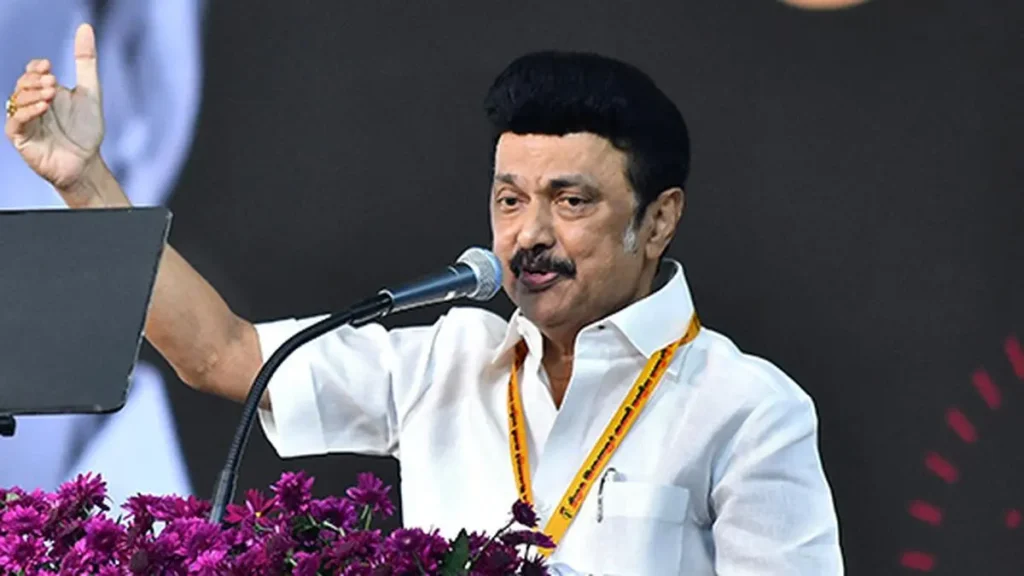
Amid the row over NEET, Stalin attempts to move education to the State list and improve Centre–State ties through the committee.
| Photo Credit: E. Lakshmi Narayanan
Tamil Nadu Chief Minister M.K. Stalin informed the Legislative Assembly on April 15 that the government was constituting a committee headed by former Supreme Court Justice Kurian Joseph to protect State autonomy. The three-member committee will submit its interim report by the end of January 2026. The committee’s final report will take two years to materialise.
“At a time when the rights of State are continuously being snatched away, to emphasise the concept of cooperative federalism, to enhance Centre-State relations with appropriate policies, it is necessary to examine and reevaluate orders of the Indian government as well as existing laws in practice, and to recommend steps to the [State] government, it has become necessary to constitute a committee,” Stalin informed the Assembly. “To protect the genuine rights of States guaranteed in the Indian Constitution, and to better the relationship between the Union and the States, a committee headed by former Supreme Court judge Kurian Joseph is being set up,” he added.
The other members of the committee are K. Ashok Vardhan Shetty, a former Indian Administrative Service officer and Vice Chancellor of the Indian Maritime University, and M. Naganathan, a former Tamil Nadu Planning Commission Vice Chairperson.
Also Read | Opposition ruled States demand transparency in delimitation process
Kurian Joseph was a judge of the Supreme Court from 2013 to 2018 and was on the Bench, which decided on matters such as the National Judicial Appointments Commission, triple talaq, and electronic evidence. Earlier, he was the Chief Justice of the Himachal Pradesh High Court. Shetty served in former Tamil Nadu Chief Minister M. Karunanidhi’s office from 1996 to 2001 and is known for his keen analytical skills in governance and administration. He took premature retirement from the IAS. Naganathan, who was closely associated with Karunanidhi, had provided policy approaches to the DMK government to convert the party’s promises to action.
In a later intervention, Stalin demanded that education be moved to the State list from the Concurrent list. The DMK government has been frustrated over the BJP-run Union government’s refusal to withdraw the National Eligibility Cum Entrance Test (NEET) from Tamil Nadu. Ahead of the 2021 Legislative Assembly election, the DMK had promised the people of Tamil Nadu that NEET would be abolished once the party came to power. Deputy Chief Minister Udhayanidhi Stalin had asserted that the DMK had a “secret” to do away with NEET. Nearly four years later, the DMK has not been able to achieve this aim.
The BJP’s State vice president Narayanan Tirupathy asked why the Chief Minister was hiding the fact that it was the Congress government at the Centre that moved education from the State list to the Concurrent list. “Has he forgotten that he has been in alliance with the same Congress party for long to enjoy the power and positional comfort?” he said. “If you want to provide good governance, the first step you need to take is to eradicate corruption, which means removing people like Senthil Balaji from the Cabinet,” he added.
Former Supreme Court Justice Kurian Joseph will lead Tamil Nadu’s panel reviewing Central laws and safeguarding State autonomy.
| Photo Credit:
THE HINDU
Even as the Chief Minister was reading out information on the constitution of the committee, MLAs belonging to the All India Anna Dravida Munnetra Kazhagam (AIADMK) staged a walkout. The AIADMK MLAs said that they were forced to walk out because the Speaker refused permission to bring a no-confidence motion against Ministers who conflicted with the law. The Ministers against whom the AIADMK wanted to bring a no-confidence motion included K.N. Nehru, Senthil Balaji and K. Ponmudy.
The Enforcement Directorate had recently raided Nehru’s brothers, Ravi and Manivannan, and his son, Arun Nehru, who is a Member of Parliament. The ED had put out an elaborate press release on the raids on April 11, synchronising the release with Union Home Minister Amit Shah’s announcement of the BJP’s alliance with the AIADMK.
Senthil Balaji has been in the adverse notice of the Supreme Court, with the court repeatedly questioning why he, who has been enlarged on bail by the court, was still a Minister. Ponmudy was relieved of his party position on April 11 for his uncouth comments about women. All three were unfit to remain in the Cabinet, the AIADMK MLAs contended, and added that these were the more important matters that concerned the people of the State.
The BJP has said that it will not support the formation of the committee. “We cannot accept this,” said the State’s new BJP president Nainar Nagendran, who is also an MLA. “We will oppose it,” he added.
Also Read | Nainar Nagendran is new BJP State chief as party seals deal with AIADMK
This is the second time that a Tamil Nadu government has constituted a committee to study Centre-State relations. Soon after former Chief Minister Karunanidhi assumed office after the death of Annadurai in 1969, he constituted the Rajamannar Committee to examine Centre-State relations. The committee presented its recommendations to the government in 1971.
The committee recommended the formation of an inter-State council of Chief Ministers. It wanted the Prime Minister to head the council. All issues of national importance were to be discussed in this council ahead of decision-making. The committee fixed the State High Court as the top court on civil and criminal issues and wanted the Supreme Court to interpret only issues related to the interpretation of the Indian Constitution. Of all the recommendations, only the one on the formation of the inter-State council was accepted.
Source:https://frontline.thehindu.com/politics/tamil-nadustate-autonomy-committee-neet-row-stalin-kurian-joseph/article69452004.ece

